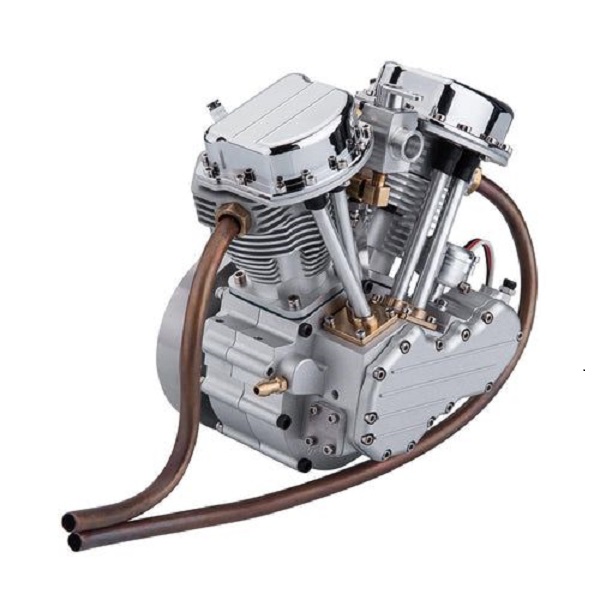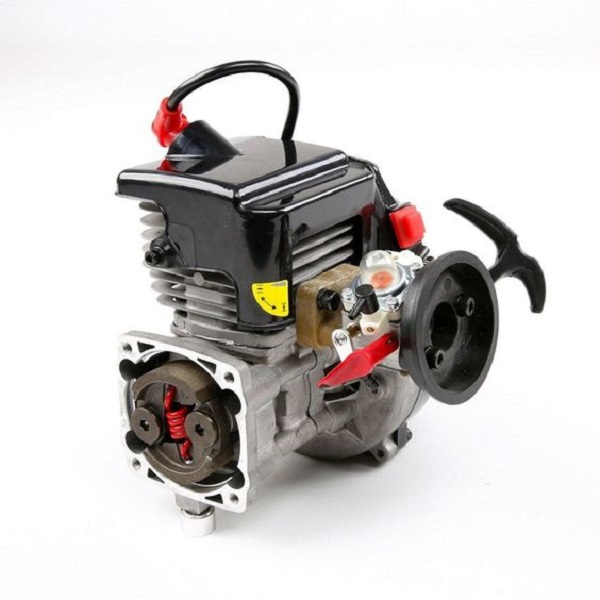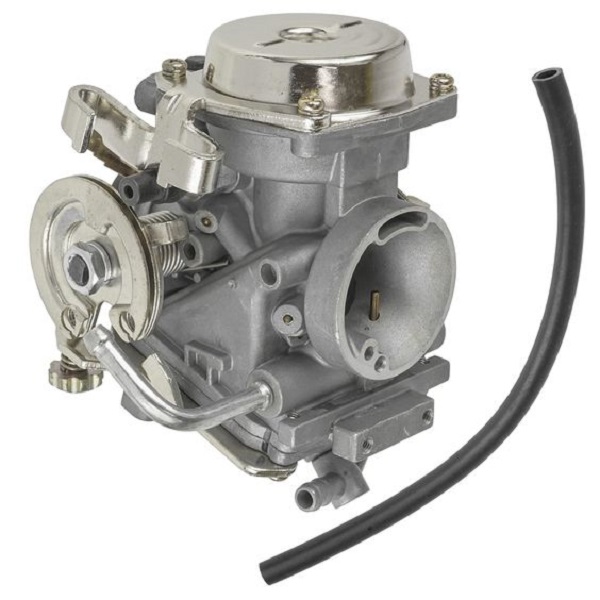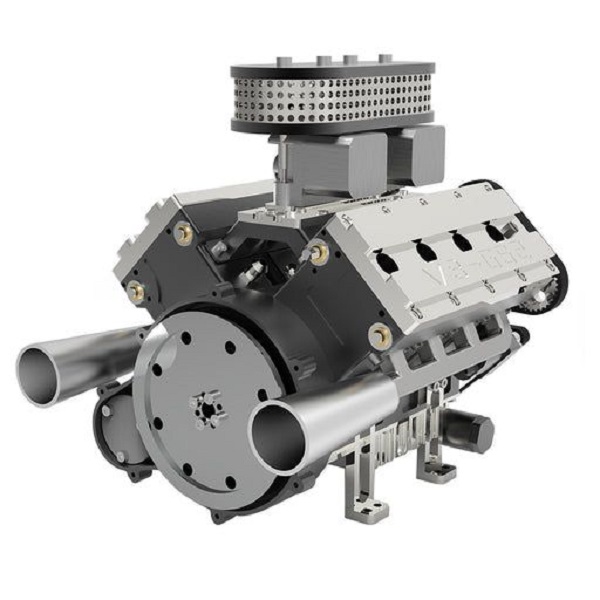Understanding the Basics of an Interference Engine
An interference engine is a type of internal combustion engine where the pistons and valves come perilously close to each other. So close, in fact, that if the timing system fails, the piston can collide with an open valve, causing catastrophic engine damage. This is in stark contrast to non-interference engines, where there’s enough clearance to prevent such a collision.
How an Interference Engine Works
To grasp the concept fully, let’s break down the components involved:
- Pistons: These are the components that move up and down within the cylinders, compressing the air-fuel mixture and converting it into power.
- Valves: These control the intake of air and fuel and the exhaust of burnt gases.
- Timing system: This intricate mechanism ensures that the pistons and valves operate in perfect harmony. It’s typically driven by a timing belt or chain.
In an interference engine, the timing system is crucial. It synchronizes the movement of the pistons and valves with precision. If the timing belt or chain breaks, the valves might remain open as the piston reaches its peak, leading to a collision.
The Risks of an Interference Engine
The potential consequences of a timing belt or chain failure in an interference engine are severe:

- Bent valves: This is the most common damage, as the piston strikes the valve, bending it.
- Piston damage: In severe cases, the piston itself can be damaged due to the impact.
- Engine overhaul: Repairing the engine often requires a complete overhaul, which can be expensive and time-consuming.
Why Interference Engines Are Common
Despite the risks, interference engines are prevalent in modern vehicles for several reasons:
- Increased efficiency: Interference engines often have higher compression ratios, leading to better fuel economy and performance.
- Compact design: They tend to be smaller and lighter than non-interference engines.
- Power output: Interference engines can produce more power for their size.
Identifying an Interference Engine
Determining whether your engine is an interference or non-interference type is essential for proper maintenance:
- Vehicle manual: Consult your owner’s manual for specific information about your engine.
- Online resources: Numerous online databases and forums can provide information on engine types.
- Mechanic consultation: If you’re unsure, consult a qualified mechanic.
Preventing Catastrophic Failure
While a timing belt or chain failure can’t always be prevented, regular maintenance can significantly reduce the risk:
- Adhere to maintenance schedule: Follow the recommended service intervals for timing belt or chain replacement.
- Listen for unusual noises: Pay attention to any unusual sounds coming from the engine.
- Visual inspections: Regularly inspect the timing belt or chain for signs of wear and tear.
The Mechanics of an Interference Engine
To truly understand the implications of an interference engine, it’s essential to delve deeper into the mechanics involved.
- Valve Timing: Precision is paramount in an interference engine. The valves must open and close at exact moments to allow for the intake of air and fuel, as well as the expulsion of exhaust gases.
- Timing Belt or Chain: This component synchronizes the crankshaft and camshaft, ensuring valves and pistons operate in harmony. Any disruption to this timing can lead to catastrophic results.
- Clearance: The critical factor is the clearance between the piston and the valves. In an interference engine, this clearance is minimal, leaving little room for error.
Signs of Potential Timing Belt or Chain Issues
Recognizing early warning signs can help prevent catastrophic failure:

- Unusual engine noises: A ticking, rattling, or grinding sound can indicate timing belt or chain problems.
- Check engine light: This could signal a variety of issues, including potential timing problems.
- Difficulty starting: Issues with the timing system can make starting the engine difficult.
- Power loss: A loss of power or engine misfires might be related to timing issues.
Maintenance and Prevention
Regular maintenance is crucial for preventing interference engine failure:
- Adhere to service intervals: Follow the manufacturer’s recommended service schedule for timing belt or chain replacement.
- Inspect components: Regularly inspect the timing belt or chain for signs of wear, cracking, or damage.
- Check tension: Ensure the timing belt or chain is tensioned correctly.
- Quality parts: Use high-quality replacement parts when necessary.
Common Misconceptions About Interference Engines
There are several misconceptions surrounding interference engines:
- All modern engines are interference: While many modern engines are interference, it’s essential to check specific models.
- Timing belt issues always cause catastrophic damage: While this is a common outcome, the severity of damage can vary.
- Regular oil changes prevent timing belt failure: While essential for engine health, oil changes do not directly impact timing belt lifespan.
The Mechanics of an Interference Engine
To truly understand the implications of an interference engine, it’s essential to delve deeper into the mechanics involved.
- Valve Timing: Precision is paramount in an interference engine. The valves must open and close at exact moments to allow for the intake of air and fuel, as well as the expulsion of exhaust gases.
- Timing Belt or Chain: This component synchronizes the crankshaft and camshaft, ensuring valves and pistons operate in harmony. Any disruption to this timing can lead to catastrophic results.
- Clearance: The critical factor is the clearance between the piston and the valves. In an interference engine, this clearance is minimal, leaving little room for error.
Signs of Potential Timing Belt or Chain Issues
Recognizing early warning signs can help prevent catastrophic failure:
- Unusual engine noises: A ticking, rattling, or grinding sound can indicate timing belt or chain problems.
- Check engine light: This could signal a variety of issues, including potential timing problems.
- Difficulty starting: Issues with the timing system can make starting the engine difficult.
- Power loss: A loss of power or engine misfires might be related to timing issues.
Maintenance and Prevention
Regular maintenance is crucial for preventing interference engine failure:
- Adhere to service intervals: Follow the manufacturer’s recommended service schedule for timing belt or chain replacement.
- Inspect components: Regularly inspect the timing belt or chain for signs of wear, cracking, or damage.
- Check tension: Ensure the timing belt or chain is tensioned correctly.
- Quality parts: Use high-quality replacement parts when necessary.
Common Misconceptions About Interference Engines
There are several misconceptions surrounding interference engines:
- All modern engines are interference: While many modern engines are interference, it’s essential to check specific models.
- Timing belt issues always cause catastrophic damage: While this is a common outcome, the severity of damage can vary.
- Regular oil changes prevent timing belt failure: While essential for engine health, oil changes do not directly impact timing belt lifespan.
Signs and Symptoms of Interference Engine Problems
While early detection is challenging, here are some potential indicators:

- Unusual engine noises: A ticking, rattling, or grinding sound can signal issues with the timing system.
- Check engine light: This could indicate a variety of problems, including timing-related issues.
- Loss of power: Reduced engine performance might be a symptom of timing problems.
- Difficulty starting: Issues with the timing system can make starting the engine difficult.
Diagnosing Interference Engine Problems
Pinpointing the exact issue requires a thorough inspection by a qualified mechanic:
- Compression test: This can help determine if valves are damaged.
- Endoscope inspection: Visual inspection of the engine cylinders can confirm valve damage.
- Timing belt or chain inspection: Checking the condition of the timing components is essential.
Understanding Your Engine
Knowing whether your vehicle has an interference engine is crucial for proper maintenance and preventing costly repairs. By understanding the risks and taking preventative measures, you can extend the life of your engine and avoid unexpected breakdowns.



